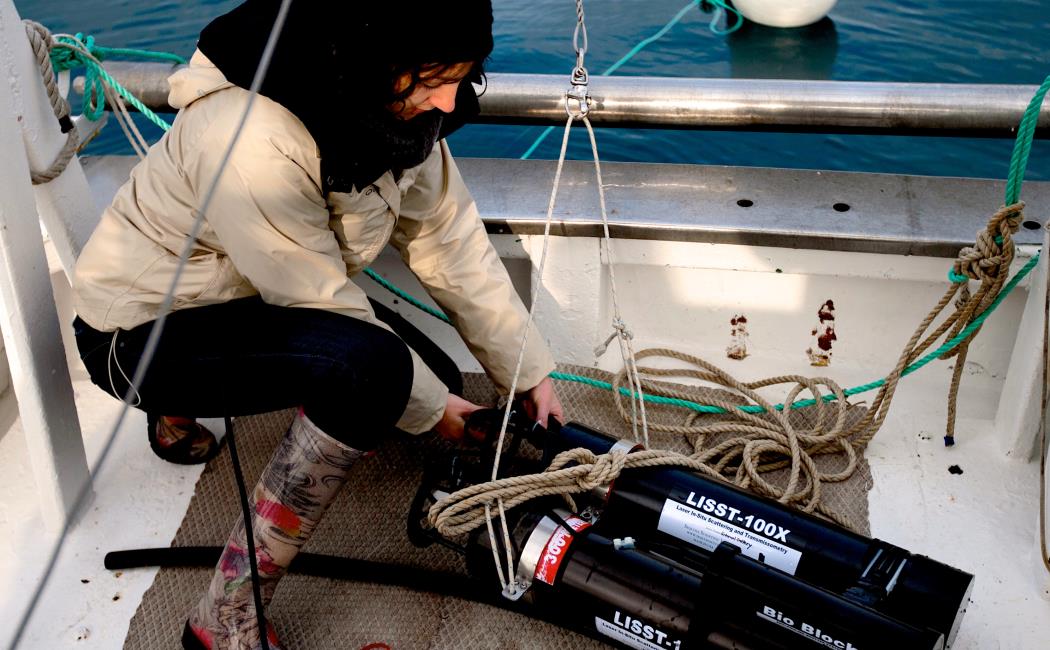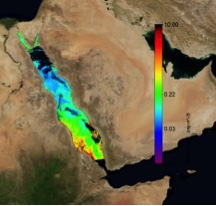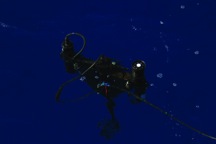
Details

The Marine Optics and Remote Sensing group is an interdisciplinary group studying the interaction of solar energy with the ocean and atmosphere. Our main research topics is dedicated to the description and analysis of the propagation of light in the ocean and to identify the main bio-optical (particulate and dissolved matter) and physical processes which control the variability of the ocean color signal in the Red Sea. The purpose is to improve our understanding on the tight coupling between marine optics and biogeochemical processes, as well as to obtain a better retrieval of different bio-optical products from ocean color remote sensing.

Daily MODIS-AQUA derived of Chl-a over the Red Sea in 7 February 2015.
To achieve these objectives, field measurements performed in different areas of the Red Sea during different cruises or from sea-gliders are combined with algorithm development and radiative transfer studies. The in situ obtained measurements, combined with observations on ocean color by satellite imagery, will also contribute to the understanding of the role of phytoplankton in regulating the carbon cycle of the oceans.

Profile of radiometric quantities performed by Hyper-Pro (Satlantic) during a cruise in the North-Central Red Sea in October 2014. Credit: B. Kurten
Additionally, under the auspices of the REMOCEAN ("remotely-sensed biogeochemical cycles in the Ocean") project in collaboration with Dr. Hervé Claustre from Laboratoire d'Océanographie de Villefranche (France), two BIO-ARGO floats equipped with physical, biochemical and optical sensors will be deployed in two different area of the Red Sea. Aiming to better understand biogeochemical cycles in the Red Sea, this collaboration seeks to deploy a new generation of autonomous platforms - so-called profiling floats - in order to collect data continuously. The real-time measurements, combined with observations on ocean color by satellite imagery, will contribute to our understanding of the role of phytoplankton in regulating the carbon cycle of the Red Sea.